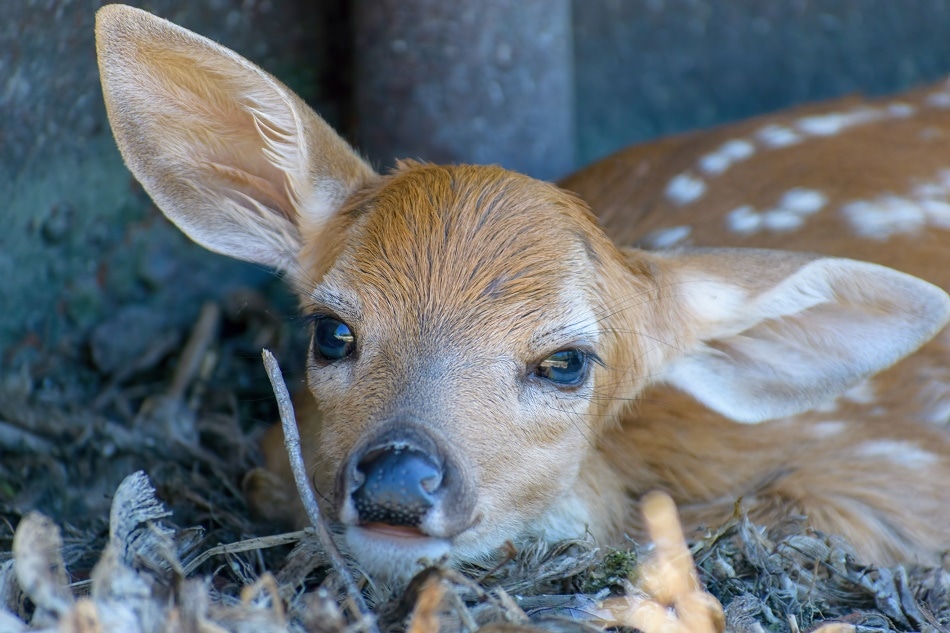
Image Credit: Kristen Prahl/Shutterstock.com
The negative impact of climate change on wild animals has become clearer as scientists find evidence uncovering that in response to environmental changes, animals in the wild are rapidly evolving to have shorter gestation periods, resulting in early births.
Genetic Changes Fostered by Global Warming
A recent study has revealed that the red deer inhabiting the Isle of Rum, just off Scotland’s west coast, are giving birth an average of 12.3 days earlier in the year than they had been just 40 years ago. The research has found that this rapid shift in birth dates is at least partly due to genetic changes brought on by evolution.
The study follows on from earlier research that has identified that birthing dates have been brought forward since the 1980s. Increasingly rising average annual temperatures are believed to have altered the deer’s behavior and their physiology, resulting in birth dates being brought forward by roughly three days per decade.
The behavioral changes that have been catalyzed through the changes in weather have caused changes to the deer’s genetics through natural selection. It is thought that the genes that govern the timing of oestrus in the female, known as heat, have altered, resulting in this event occurring earlier in the year.
Usually, it is rare to witness evolution occurring over such a short time-frame, making the results of this study highly interesting as they provide a rare example of rapidly occurring evolution.
Scientists from numerous institutions were involved in the study which was conducted over a period of 45 years from 1972. A collaborative team of scientists from the Australian National University and the universities of St Andrews, Cambridge and Edinburgh, conducted the in depth study which took place on the Isle of Rum National Nature Reserve, which is managed by Scottish Natural Heritage.
The significant discovery, that evolution was occurring in such a short time frame, and that it was being influenced by climate change, was reported in the journal PLOS Biology this month. Collecting and analyzing extensive field records alongside genetic data collected from the deer.
Rutting season, which for most deer species usually occurs between late September and early November, is the time of year when males compete against each other for access to females for breeding. The stags will prepare for this season by putting on weight beforehand, to both make themselves look bigger and to also provide as an energy source, because physical combat with other males is usual in rutting season, males will lock horns and physically challenge one another.
It was discovered that the earlier occurrence of rutting season had been caused as a response to the early grazing season brought on by warmer temperatures. This in turn had led to natural selection favoring females with genes that brought them into heat sooner, coinciding with the earlier rutting season, and making them more likely to be successful in conceiving.
Female red deer, or hinds, who give birth earlier in the year are able to have more offspring during their lifetime. Therefore, genes that allow red deer to come into heat earlier are more likely to be reproductively successful, in coinciding with rutting season, and in producing a greater number of offspring.
Further Studies Needed Into The Impact of Climate Change on Wild Animals
What has been achieved by the study in Scotland is significant because it is one of the only sources of evidence which demonstrates rapidly occurring evolution. In addition to this, it provides evidence for how wild animals are developing and adapting in response to climate change.
The results highlight that further long-term studies are required in order to understand the impact of climate change on other wild animals. Monitoring these effects is essential for understanding and managing any negative impacts.
Disclaimer: The views expressed here are those of the author expressed in their private capacity and do not necessarily represent the views of AZoM.com Limited T/A AZoNetwork the owner and operator of this website. This disclaimer forms part of the Terms and conditions of use of this website.